Kia Stonic vs SEAT Leon - Differences and prices compared
Compare performance (115 HP vs 272 HP), boot space and price (20100 £ vs 24500 £ ) at a glance. Find out which car is the better choice for you – Kia Stonic or SEAT Leon?
Costs and Efficiency:
When it comes to price and running costs, the biggest differences usually appear. This is often where you see which car fits your budget better in the long run.
Kia Stonic has a evident advantage in terms of price – it starts at 20100 £ , while the SEAT Leon costs 24500 £ . That’s a price difference of around 4320 £.
Fuel consumption also shows a difference: SEAT Leon manages with 1.20 L and is therefore significantly more efficient than the Kia Stonic with 5.60 L. The difference is about 4.40 L per 100 km.
Engine and Performance:
Under the bonnet, it becomes clear which model is tuned for sportiness and which one takes the lead when you hit the accelerator.
When it comes to engine power, the SEAT Leon has a significantly edge – offering 272 HP compared to 115 HP. That’s roughly 157 HP more horsepower.
In acceleration from 0 to 100 km/h, the SEAT Leon is distinct quicker – completing the sprint in 7.70 s, while the Kia Stonic takes 10.70 s. That’s about 3 s faster.
In terms of top speed, the SEAT Leon performs a bit better – reaching 220 km/h, while the Kia Stonic tops out at 182 km/h. The difference is around 38 km/h.
There’s also a difference in torque: SEAT Leon pulls clearly stronger with 360 Nm compared to 200 Nm. That’s about 160 Nm difference.
Space and Everyday Use:
Whether family car or daily driver – which one offers more room, flexibility and comfort?
Both vehicles offer seating for 5 people.
In curb weight, Kia Stonic is to a small extent lighter – 1205 kg compared to 1344 kg. The difference is around 139 kg.
In terms of boot space, the SEAT Leon offers minimal more room – 380 L compared to 352 L. That’s a difference of about 28 L.
In maximum load capacity, the SEAT Leon performs slightly better – up to 1301 L, which is about 146 L more than the Kia Stonic.
When it comes to payload, SEAT Leon a bit takes the win – 521 kg compared to 445 kg. That’s a difference of about 76 kg.
Who wins the race in the data check?
The SEAT Leon holds a decisive overall lead in the objective data comparison.
This result only shows which model scores more points on paper – not which of the two cars feels right for you.
Costs and Consumption
View detailed analysis
Engine and Performance
View detailed analysis
Dimensions and Body
View detailed analysis
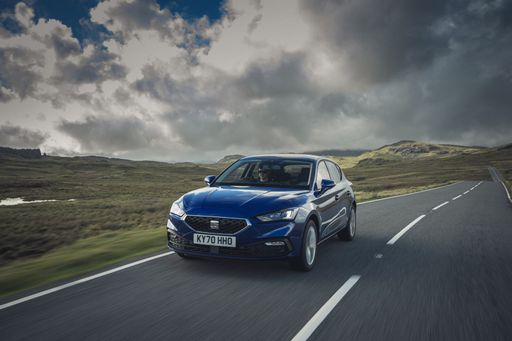
SEAT Leon
Kia Stonic
The Kia Stonic is a sprightly compact crossover that mixes city-friendly agility with a cheeky, modern design — perfect for buyers who want style without sacrificing sense. Inside it serves up clever practicality and a bright, well-equipped cabin, making everyday driving feel a bit more fun than it has any right to be.
details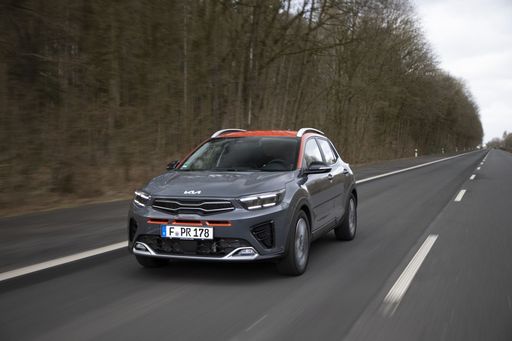
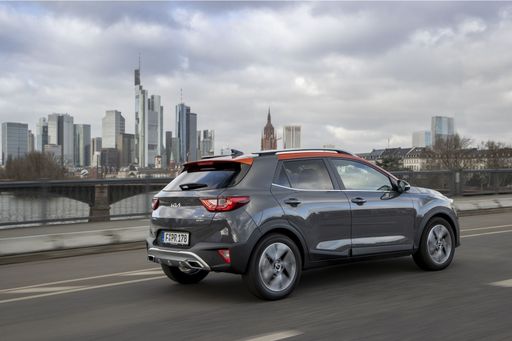
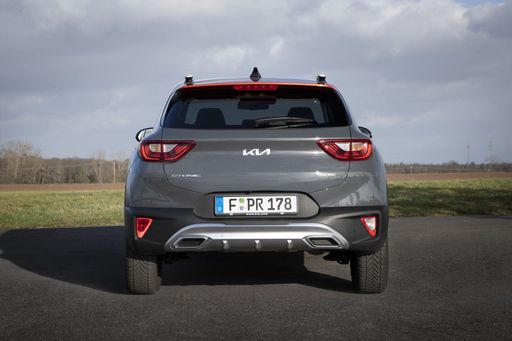
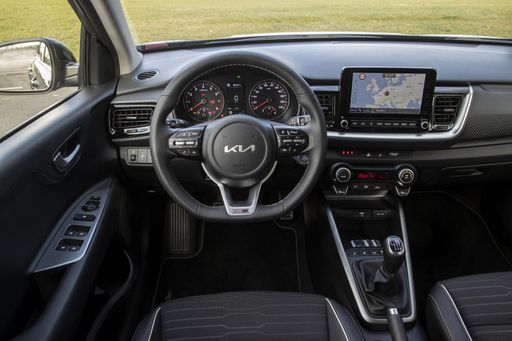
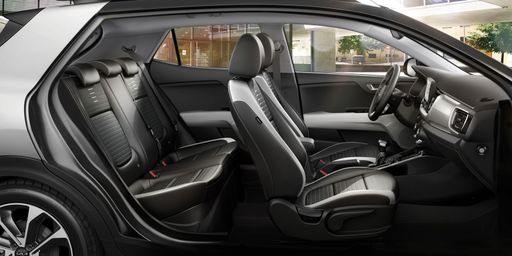
SEAT Leon
SEAT Leon pairs sharp, modern styling with a cabin that's sensible and slightly sporty, making it an appealing choice for buyers who want flair without fuss. It drives with eager composure and offers a neat balance of comfort and agility, so you get everyday usability with a wink of fun.
details
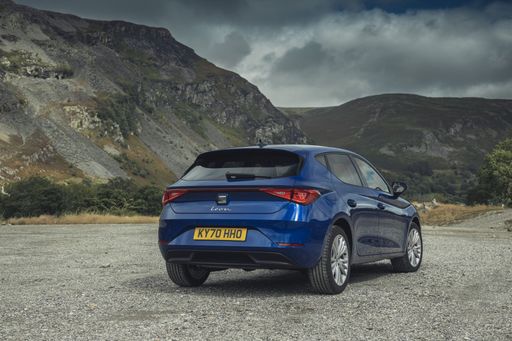
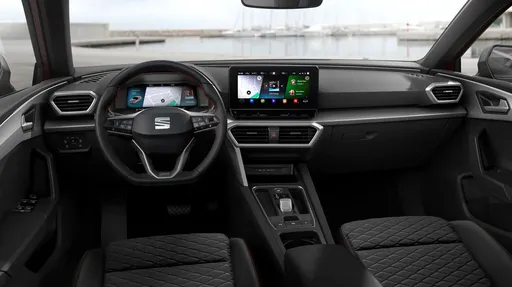
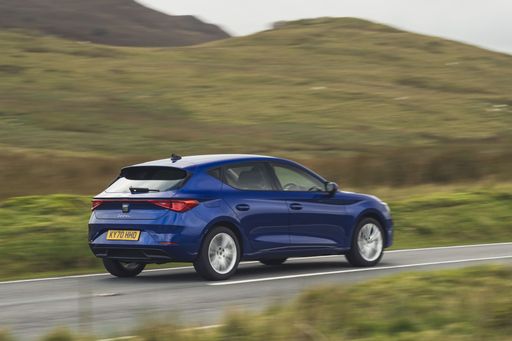
Costs and Consumption |
|
|---|---|
|
Price
20100 - 26600 £
|
Price
24500 - 36400 £
|
|
Consumption L/100km
5.6 - 5.9 L
|
Consumption L/100km
1.2 - 5.5 L
|
|
Consumption kWh/100km
-
|
Consumption kWh/100km
-
|
|
Electric Range
-
|
Electric Range
133 km
|
|
Battery Capacity
-
|
Battery Capacity
19.70 kWh
|
|
co2
127 - 133 g/km
|
co2
27 - 126 g/km
|
|
Fuel tank capacity
45 L
|
Fuel tank capacity
40 - 45 L
|
Dimensions and Body |
|
|---|---|
|
Body Type
SUV
|
Body Type
Hatchback
|
|
Seats
5
|
Seats
5
|
|
Doors
5
|
Doors
5
|
|
Curb weight
1205 - 1270 kg
|
Curb weight
1344 - 1657 kg
|
|
Trunk capacity
352 L
|
Trunk capacity
270 - 380 L
|
|
Length
4165 mm
|
Length
4368 mm
|
|
Width
1760 mm
|
Width
1799 mm
|
|
Height
1520 mm
|
Height
1442 - 1460 mm
|
|
Max trunk capacity
1155 L
|
Max trunk capacity
1187 - 1301 L
|
|
Payload
440 - 445 kg
|
Payload
473 - 521 kg
|
Engine and Performance |
|
|---|---|
|
Engine Type
Petrol, Petrol MHEV
|
Engine Type
Petrol, Petrol MHEV, Diesel, Plugin Hybrid
|
|
Transmission
Manuel, Automatic
|
Transmission
Manuel, Automatic
|
|
Transmission Detail
Manual Gearbox, Dual-Clutch Automatic
|
Transmission Detail
Manual Gearbox, Dual-Clutch Automatic
|
|
Drive Type
Front-Wheel Drive
|
Drive Type
Front-Wheel Drive
|
|
Power HP
100 - 115 HP
|
Power HP
116 - 272 HP
|
|
Acceleration 0-100km/h
10.7 - 12.1 s
|
Acceleration 0-100km/h
7.7 - 10.5 s
|
|
Max Speed
179 - 182 km/h
|
Max Speed
197 - 220 km/h
|
|
Torque
172 - 200 Nm
|
Torque
220 - 360 Nm
|
|
Number of Cylinders
3
|
Number of Cylinders
4
|
|
Power kW
74 - 85 kW
|
Power kW
85 - 200 kW
|
|
Engine capacity
998 cm3
|
Engine capacity
1498 - 1968 cm3
|
General |
|
|---|---|
|
Model Year
2025
|
Model Year
2024 - 2025
|
|
CO2 Efficiency Class
D
|
CO2 Efficiency Class
D, B
|
|
Brand
Kia
|
Brand
SEAT
|
Is the Kia Stonic offered with different drivetrains?
The Kia Stonic is offered with Front-Wheel Drive.




